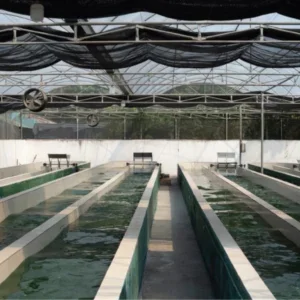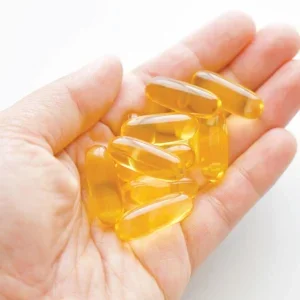
In a time of heightened awareness of health and well-being, prompted inevitably by the Covid-19 pandemic, consumers across the world are looking for remedies and supplements that can help them fend off or reduce the symptoms of illness. High on their list of priorities is strengthening the immune system, and this is where probiotics could prove their worth.
Probiotics are live microorganisms that are added to foods or taken as a supplement to improve gut health, which is seen as an increasingly important component in the human body. They work by promoting the growth of ‘good’ bacteria as part of the body’s microbiome and, when they multiply, they can crowd out harmful bacteria in the stomach and intestines, thereby promoting gut health.
Some gut pathogens produce toxins, but many different strains of probiotics produce beneficial substances, among them certain vitamins and short-chain fatty acids that have a positive impact on the digestive process. There is a solid body of scientific evidence suggesting that probiotics can boost immunity by preventing colonisation by pathogens and, therefore, reduce the incidence of infections. For this reason, probiotics have boomed in popularity over the past two years.
“We saw in the beginning of the pandemic an increase in consumer interest in the effects of probiotics, especially in looking for science-based evidence of probiotics on immune stimulation,” says Esben Laulund, president of the International Probiotics Association Europe and vice-president for external collaboration, R&D, at Danish food company Chr. Hansen.
“Enough studies now show that certain strains will have some effect on the immune system,” says Professor A K Srivastava, president of the Probiotic Association of India. “They prevent pathogens, boost immune systems, increase cytokines and other defensins, and promote GI health and immune health.”
“There is no question that interest has exponentially gone up and my patients are much more interested,” he adds. “Yoghurt and fermented foods have grown in popularity since I started in 2005, and there is a big change in a group of people who believe that diet and exercise are as important as what doctors can do for you.”
While some of the growth of the probiotics market is due to a keener awareness of diet as a component of overall health, there is no doubt that some are driven by specific concerns around the pandemic.
“Chr. Hansen and other companies with science-based probiotic strains have published results from clinical trials that prove that certain probiotic strains strengthen the body’s immune response,” Laulund adds. “We have not specifically focused on how to fight coronavirus, but we can document that certain probiotic strains can improve the immune response and, as such, this may have an effect also on coronavirus.”
Can probiotics fight Covid?
Laulund touches on the key question of whether probiotics are a useful tool for combatting the many variants of Covid-19. According to the World Health Organisation (WHO), the answer is a resounding ‘no’. It states in its Covid-19 guidance that there is currently no evidence to support the use of probiotics to help prevent or cure the disease.
“We have several documented probiotic strains that demonstrate that these strains have a positive effect against some respiratory tract infections,” Laulund remarks. “However, we do have a strong focus on understanding the effect of probiotic strains on GI function and immune stimulation, and there is no doubt that there is a great interest in the effects of probiotic strains and especially the strains isolated from the human microbiome to remedy any threats to the human well-being.”
In the early stages of the pandemic, probiotics were touted as having the potential to help the human body fight the virus, thus reducing the potential for infection or, at least, minimising the severity of the symptoms.
Writing in The Lancet early on in the pandemic, a team from the Department of Public Health and Infectious Diseases at Sapienza University of Rome noted that studies had suggested that SARS-CoV-2 instigates an acute intestinal inflammatory response – highlighted in laboratory tests by elevated levels of faecal calprotectin and serum interleukin-6, and clinically evidenced by diarrhoea – and that gastrointestinal disorders are frequent in Covid-19, but that nothing was known about the viruses effect on host microbial flora.
Case Study
A 12-week study by The Probiotics Institute showed that when the LGG and BB-12 strains were consumed together by college students, they had 33% fewer days with respiratory tract discomfort and felt significantly less unwell than those who received placebo.
The Probiotics Institute
“There is a great interest in the effects of probiotic strains and especially the strains isolated from the human microbiome to remedy any threats to human well-being.”
Esben Laulund, IPAE
This would suggest that an investigation to clarify the potential for probiotics to have a remedial effect would be of paramount importance, but a paper in 2021 entitled ‘Probiotics in Prevention and Treatment of COVID-19: Current Perspective and Future Prospects’, led by a team from the Department of Pharmacy Practice, Manipal College of Pharmaceutical Sciences in India suggested there was conflicting evidence on their effectiveness.
The paper, published by the National Center for Biotechnology Information, noted that differences persist in the physiology and metabolism among probiotic strains of various species and, consequently, their effects are different on the human body and even different strains of the same species may have different health effects. It further noted that dosage affects the results and that a probiotic consumed at a higher dose may not be as good as a lower dose. Furthermore, the same probiotic strain can function differently in different hosts.
Case Study
A study investigating respiratory tract discomfort in healthy adults showed that supplementing with the LGG probiotic strain affected the number of antibodies the body produced when confronted with an immune challenge, showing that 29% more participants produced the number of specific antibodies required to counter that specific immune challenge, compared with the placebo group.
The Probiotics Institute
“As clinicians and scientists learn more, we can advise more. Taking anything is better than nothing, but we need to educate consumers and patients.”
A K Srivatsava, PAI
“Not every probiotic strain is the same,” notes Srivastava. “Much depends on your diet and genetics. You need to be more specific in how strains are studied and how those results are presented. Multiple probiotic drugs will emerge, and those drugs will need to be more specific – that is the path.”
“I think probiotics will become more specific to treat or prevent IBS or influenza,” he adds. “Now the question is whether we can help immune systems improve symptoms when you get a viral disease like Covid or flu. Viruses are so hard to treat. Whatever happens, it will come in the form of a drug rather than a particular probiotic strain. Flu treatment is still pretty poor and we’ve been working on that for ages.”
Changing perceptions
One thing is clear, the interest in probiotics is driving their use along many different paths. Usually seen as a component in certain foods or as a supplement containing a specific strain, they could soon be administered through a more pharmaceutical route, as probiotic drugs go into development.
“Drug development has already started,” notes Srivastava. “Drugs are being studied for infantile colitis and necrotising enterocolitis, but the big area of research now is the gut/brain barrier, which could be important in treating so many conditions including anxiety and depression. Drugs are the next step forwards, but we will see probiotics in more foods, and we will come to understand more about the microbiome and the synergistic effects of both probiotics and probiotics.”
“There is also research into probiotics and metabolic syndrome, weight reduction and diabetes,” he adds. “The results are ten years down the road, but we have seen lab mice lose fat and we have seen good results with anxiety. So, brain diseases are the key area, but excess weight is the number one comorbidity with Covid, so there could be scope for further research there.”
Given the many factors identified by the Manipal College of Pharmaceutical Sciences team on which the effects of probiotics depend – specific strains, dosages, host genetics and more – it is hard to point to a specific regimen that will benefit a specific individual who wants to improve their immune systems.
One big problem with probiotics is that it is easy to generalise in a highly specific field.
“Perception is for sure a real problem,” says Laulund. “The science-based suppliers of probiotics are doing a lot of things to educate health professionals and consumers that not all probiotic strains are the same or have equal effect. That is why Chr. Hansen has launched ‘The Probiotics Institute’ to educate them about the properties of probiotics on human health and nutrition.”
“People do overgeneralise and take strains that don’t have any effect,” says Srivastava. “As clinicians and scientists learn more, we can advise more. Taking anything is better than nothing but we need to educate consumers and patients, as well as ensuring that clinicians and nutritionists understand it better.”
Whether or not probiotics do turn out to have a key role in fighting Covid-19, it is clear that many more people now understand that gut health is the core of physical well-being and contributes in some significant way to immune health. Taking probiotics will play some role in the body’s ability to fight off infections, particularly those that cross into the blood through the GI tract. Good health is gut health.





